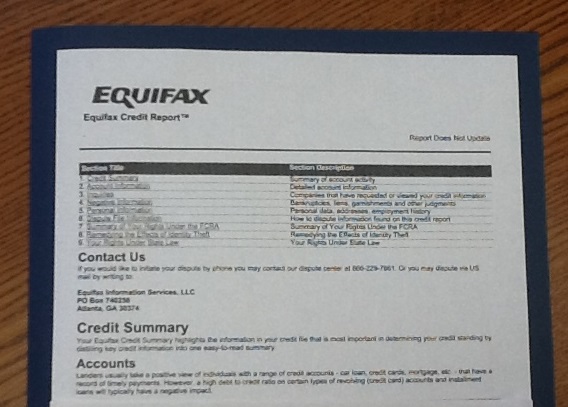
by Kendra Hughson | Apr 10, 2019
Just like your home, finances need regular “cleaning” and maintenance. Plan time this spring to focus on financial tasks. A little time spent getting organized and reviewing your financial habits helps keep your financial goals on track.

Spring clean your finances by getting organized. Photo Credit: Kendra Zamojski
Get Organized
A good spring cleaning starts with getting organized. Sort through important papers. Decide what you need to keep and what can be shredded or tossed. File your important papers. If you don’t have a home filing system, now is a great time to set one up. With an organized filing system, you can locate important documents quickly and easily when needed. Use UF/IFAS Extension’s Financial Recordkeeping resource to know what to keep and what to toss.
Track Your Spending
Update your spending plan by reviewing your financial goals. Check your financial progress by tracking your spending. Where is your money going? Is your money going toward your goals? Get the whole family involved in recording expenditures for a month. Track expenses by writing down every expenditure on a piece of paper. Alternatively, find a box and place all your receipts in it, being sure to include any money spent even if you didn’t receive a receipt. At the end of the month, review your spending record and look for places where you can cut back. UF/IFAS Extension’s Building a Spending Plan: All Six Steps is a great tool to create or update your spending plan.
Review Your Credit Report
A good credit history saves money through lower interest rates and makes it easier to get credit when needed. Annually, review your credit report from each of the three major credit bureaus. By law, consumers are entitled to one free copy of their credit report every 12 months from Equifax, Experian, and TransUnion. Get free copies of your credit reports at www.annualcreditreport.com. Consider rotating through the three bureaus every few months so you can check your credit report throughout the year. Review your credit report for errors and fraudulent activity. Also, review any negative information that could impact your credit and credit score.
Credit scores are based on the information contained in your credit report. You can obtain your credit score from www.myfico.com for a fee. Many credit card companies offer free FICO scores through their online billing websites. Companies like Credit Karma and Credit Sesame offer free credit score estimates but these sites also include advertisements for financial and other products. Check out UF/IFAS Extension’s You and Your Credit Series.
Make your finances a part of your springtime cleaning routine. A little time spent getting organized and reviewing your spending plan and credit reports will go a long way toward keeping you on track toward your financial goals.

by Judy Corbus | Oct 10, 2017

Photo credit: Judy Corbus
The recent security breach at Equifax from mid-May through July 2017 exposed the personal information of 143 million people; this included Social Security numbers, birth dates, addresses, and driver license numbers. You may be wondering, “Am I affected?” and, if so, “What should I do now?”
First, find out if your information was exposed at https://www.equifaxsecurity2017.com/potential-impact/. Make sure you are on a secure computer and an encrypted network connection. Even if your information was not exposed, U.S. consumers can get a year of free credit monitoring and other services. The site will give you a date when you can come back to enroll. Write down the date and return to the site and click “Enroll” on that date. You have until November 21, 2017 to enroll.
Order your free credit reports annually through the federally authorized web site www.annualcreditreport.com. You are allowed one free report every 12 months from each of the three major credit reporting agencies: Equifax, TransUnion, and Experian. Your credit reports will provide a detailed history that may better alert you to credit fraud.
Consider a credit freeze. A credit security freeze prevents credit reporting agencies from releasing your credit report or information from it, with a few exceptions, unless you lift the freeze. A credit freeze prevents identity thieves from opening new accounts in your name but it won’t prevent a thief from making charges to your existing accounts. It also does not prevent non-credit related frauds, such as tax refund identity theft and health insurance fraud. For these, consumers are advised to “be vigilant.”
You must request a credit freeze with each agency. In Florida, the fee to place a freeze is $10 with each agency for persons under age 65. If you are 65 or older or have been a victim of identity theft, the fee is waived. Currently, Equifax is waiving fees. You will need to lift the freeze if you want to open a new account, change insurance policies, rent housing, or sign up for new utilities or phone service – any transaction requiring a credit check. The fee to lift the freeze, either temporarily or permanently, is $10 per agency and it may take up to three business days for the lift to take effect.
Credit freeze requests may be made online, by phone, or by certified U.S. mail. Be patient and persistent, as many consumers are filing requests; websites often get overloaded temporarily. Below is the contact information for each credit reporting agency for each contact method:
Online
Equifax: https://www.freeze.equifax.com/Freeze/jsp/SFF_PersonalIDInfo.jsp
Experian: https://www.experian.com/freeze/center.html
TransUnion: https://www.transunion.com/credit-freeze/place-credit-freeze
Telephone
Equifax: 800-685-1111
Experian: 888-397-3742
TransUnion: 888-909-8872
U.S. Mail
Equifax: Equifax Security Freeze, P.O. Box 105788, Atlanta, GA 30348
Experian: Experian, P.O. Box 9554, Allen, TX 75013
TransUnion: TransUnion LLC, P.O. Box 2000, Chester, PA 19016
For mailed security freeze requests, include the following information in a cover letter format:
- Full name (with middle initial) and former name, if applicable
- Current address and former addresses within the last five years
- Social Security number
- Full date of birth (month, day, year)
- Signature
- Photocopies of two forms of identification, such as a government-issued identity card and proof of residence such as phone bill or utility company bill.
For more information, visit: http://www.freshfromflorida.com/Consumer-Resources/Scams-and-Fraud/Identity-Theft/Security-Freeze-Credit-Report
Federal Trade Commission – steps to take to protect your information:
https://www.consumer.ftc.gov/blog/2017/09/equifax-data-breach-what-do
Adapted from:
The Equifax Data Breach: What to Do, Federal Trade Commission
Equifax Security Breach: Steps to Protect Yourself, UF/IFAS Extension Hillsborough County
To Freeze or Not to Freeze My Credit Report?, University of Illinois Extension
Credit Freeze Information in the Wake of the Equifax Hack, Rutgers University Extension

by Judy Corbus | Oct 10, 2017

Photo credit: Judy Corbus
If you have been affected by the recent Equifax data breach, you may be exploring your options as to what to do next. All three major credit reporting agencies, Equifax, TransUnion, and Experian, give you the option of placing a fraud alert or a credit freeze on your file. So, what is the difference between a fraud alert and a credit freeze?
Fraud Alert
When you activate an initial fraud alert on your report, a business must verify your identity before it issues credit, so it may try to contact you. This can make it more difficult for an identity thief to open new accounts in your name. The initial fraud alert stays on your report for 90 days and you can renew it at the end of the 90-day period. Fraud alerts are free and the credit reporting agency you call must tell the other agencies about your alert. It also allows you to order a free copy of your credit report from each of the three credit reporting agencies. Be sure the credit reporting agencies have your current contact information so they can reach you.
You can place an extended fraud alert on your credit file if you have created an Identity Theft Report. With an extended alert, you can get two free credit reports within 12 months from each of the three credit reporting agencies, and the agencies must take your name off marketing lists for pre-screened credit offers for five years, unless you request to be added back to the lists. The extended alert lasts for seven years.
Credit Freeze
A credit freeze generally stops all access to your credit report. If you wish to open a new account, apply for a job, rent an apartment, buy insurance, refinance your mortgage – any transaction requiring a credit check – you must contact the credit reporting agency to lift the freeze, either temporarily or permanently. You will get a PIN to use each time you wish to freeze or unfreeze your account. In most states, there is a fee to activate a freeze as well as to lift it – usually around $10 for each and per credit reporting agency. There also is a lead time before the freeze is lifted so you would need to arrange for it in advance or be prepared to wait a few days if you planned to apply for credit. Cost and freeze lift lead times may vary so you may wish to check your state’s law or contact the credit reporting agency in advance. In most states, a credit freeze lasts until you lift it; in a few states, it expires after seven years. Click here for the Florida Statute regarding consumer security freezes.
A credit freeze may not prevent misuse of your current accounts or other types of identity theft, such as tax refund identity theft and health insurance fraud. Also, companies with whom you do business still would have access to your credit report for some purposes.
So, fraud alert or credit freeze? It depends a lot on what you have coming up in the near future. If you’re planning to apply for a loan or mortgage, you will have to unfreeze and freeze with each application – consider the cost and time involved. If you are not planning to apply for new credit, then a credit freeze may be a good option for you.
For more information on credit fraud alerts and freezes, visit:
Place a Fraud Alert and Extended Fraud Alerts and Credit Freezes
Sources:
Federal Trade Commission – Place a Fraud Alert
Federal Trade Commission – Extended Fraud Alerts and Credit Freezes
Federal Trade Commission – Fraud Alert or Credit Freeze – Which is Right for You?
UF/IFAS Extension Hillsborough County – Equifax Security Breach: Steps to Protect Yourself




